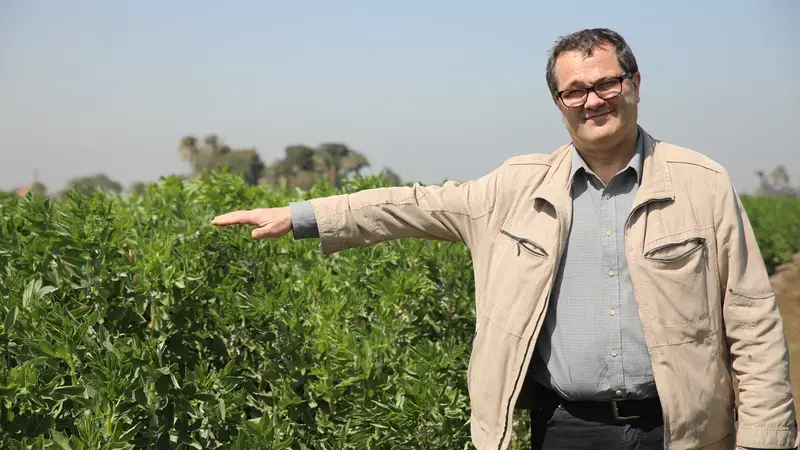Techniques to enhance the genetic gain in crop breeding programs

As the climate crisis intensifies, populations grow, disease and pest proliferate, and natural resources diminish, genetic improvement of crops within holistic breeding programs is crucial to reaching global food security. For over 40 years, ICARDA scientists, under a mandate from CGIAR, the world’s biggest agricultural research network, have developed innovative crop improvement technologies and approaches to enhance and scale-out climate-smart crops across vulnerable dry regions and beyond.
Dr. Michael Baum, ICARDA’s Acting Deputy Director General for Research, Research Team Leader of Breeding and Scaling Improved Varieties of dryland cereals and pulses, and Morocco Research Platform Manager sheds light on ICARDA’s innovations in breeding programs in our new video. Our breeding programs encompass staple dryland crops such as wheat, barley, chickpea, faba bean, lentils, and lathyrus. To improve the efficiency and precision of the breeding programs ICARDA researchers use several molecular tools.
The application of DNA molecular markers for marker-assisted selection is being widely used. Molecular markers are specific DNA fragments associated with desirable traits such as heat, disease, or pest resistance, water efficiency, and more. After these important markers are identified, selection takes place. Scientists select the plant (or in the case of our livestock program, animal) with desirable traits for inclusion in a breeding program. To accelerate plant breeding processes, ICARDA researchers also deploy other approaches such as speed breeding and tissue culture techniques for in-vitro propagation (cultivating cells in culture).
Another promising new breeding technique is genome editing, which is a group of technologies that allow scientists to change an organism’s DNA through adding, deleting, or replacing a single nucleotide at a l at a particular location in the genome (the complete set of genetic information in an organism).
This technique allows for speedy and precise mutation development to improve the crop traits. It is similar to changes of the DNA created by mutation breeding.
It is new approaches like these that significantly increase the genetic value within a population compared to conventional breeding methods to maximize the genetic gain and efficiency of breeding programs in a short time. Then, the new crop varieties are Integrated into ICARDA’s innovation packages along with capacity building, market access, and training activities to the national research program in the CWANA region to ensure that these technologies and products are available for scaling-up in different countries, and that crops, and the farmers, stand the best chance against the challenges.
